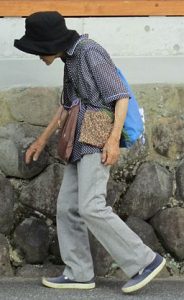The Effects of Starvation on the Skin and Nails
 Malnutrition and starvation wreak havoc on a person’s skin and fingernails. As the human body channels its limited nutritional resources towards more essential parts of the body, such as the organs, less nutrients are deployed to other parts and it results in undernourishment and changes. When there are changes in the hair and fingernails, it could be due to lack of fluids, vitamins and/or other nutrients and it means something is very wrong.
Malnutrition and starvation wreak havoc on a person’s skin and fingernails. As the human body channels its limited nutritional resources towards more essential parts of the body, such as the organs, less nutrients are deployed to other parts and it results in undernourishment and changes. When there are changes in the hair and fingernails, it could be due to lack of fluids, vitamins and/or other nutrients and it means something is very wrong.
Effects of Starvation on the Skin
When a person is in starvation mode, the skin is deprived of fats, proteins and other vital nutrients. As a result of these deficiencies, the skin will become dry, crinkled and scaly, and it could even develop a yellowish tint. It’s not unheard of for the earlobes and fingertips of an anorexic to turn a bluish color due to lack of nutrients and decreased circulation.
Another effect of starvation on the skin is the development of lanugo, which is a fine layer of hair. This is caused by the body’s primitive desire to maintain a steady body temperature. Starving the body may also cause the skin to develop edema, which is swelling. In more severe instances, a person could develop a vitamin B2 deficiency that may cause cracks on the lips and corners of the mouth.
Effects of Starvation on the Fingernails
Not only does starvation effect the skin in terrible ways, it also has an impact on a person’s fingernails. Starvation results in causing nutrient depletion and coupled with a lack of calcium, the nails tend to become dry and brittle. A deficiency in vitamin B2, particularly biotin, will produce ridges on the bed of the nails. Lacking folic acid and vitamin C can result in hangnails, and a reduction in essential dietary oils can cause cracking.
How to Heal from the Effects of Starvation
The first thing a person must do when trying to recover from starvation is to seek medical attention to find out just how malnourished they truly are. A person may be given advice on how to treat certain issues at home, or the individual may need to receive dietary intervention from a qualified health care professional.
It is possible a person will receive a diet plan, but this will depend on individual circumstances. It is probable that a person will be advised to do a gradual increase in calories. It’s also likely that a person will be advised to increase their protein, fluids, carbohydrates, minerals and vitamins.
One way to heal the body from the effects of starvation is to take special nutritional supplements in addition to consuming a healthy and balanced diet. The supplements can help increase a person’s energy levels, but also reduce the risks of infection or hospitalization.
Depending on the level of someone’s starvation, he or she may also need additional help. If there are problems digesting or swallowing food, it may require medical attention and treatment. Those suffering from severe starvation may require feeding and hydration coupled with great care, but it is always important to defer to the advice of your medical professional.
 Eating Disorder Self Test. Take the EAT-26 self test to see if you might have eating disorder symptoms that might require professional evaluation. All answers are confidential.
Eating Disorder Self Test. Take the EAT-26 self test to see if you might have eating disorder symptoms that might require professional evaluation. All answers are confidential.